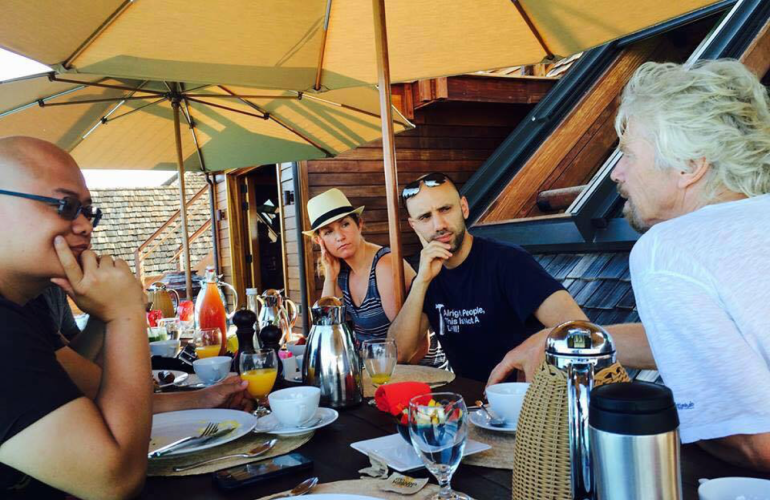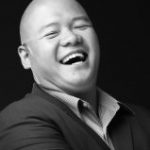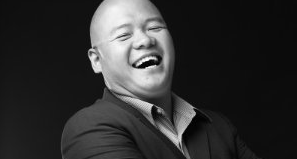Since 2013, Brian Lim has become a leader in global space-based innovation, by leading five space start-ups to initial investment and profitability. In recognition of his efforts in building sustainable space companies, Brian was invited to attend the Singularity University’s Global Solutions Program, where people are trained to impact a billion people positively in ten years. He was later invited to spend a week with Richard Branson on his island at a Change Maker and Deal Breaker event, to inspire people to tackle global challenges in an environmentally sustainable way.
At the Disrupt Space Summit 2016 in Bremen, Germany, Brian formed part of a highlight panel to discuss “collaboration driving innovation” together with Frank Salzgeber, Head of Technology Transfer Office at the European Space Agency. During the event, Spaceoneers caught up with Brian to get an insight into what it takes to form a space start-up, and how his latest venture, Hypercubes, came about.

Spaceoneers: Tell us a bit about your company, Hypercubes.
Brian Lim: We’re building a satellite designed to do chemical analyse of the Earth from space and we’re going to use it to combat climate change.
Spaceoneers: How did the idea for your business come about?
Brian Lim: Way too many beers in an Aussie bar! I actually attended the International Space University in 2013 and learned a lot about a lot of technology. But it was my time at Singularity University in 2014 in an idea that valuable business composition.
Spaceoneers: Who and what are your influences? Why?
Brian Lim: You know that list is longer than my arm! I think a science paper would be shorter. I would definitely say that I learnt a lot from Peter Diamandis on abundance, his understanding of technology; “Give and Take” by Adam Grant, how he talks about how generosity can really improve the world and as a business. I’m also really, really influenced by the work of people like Larry Page who have gone on and said ‘I want to do more, better things with the world than just make money’.
Spaceoneers: What were the biggest challenges to starting your business?
Brian Lim: I think belief is really the biggest challenge. When I started, space was still something really hard to do. Not everyone believed you could do a space start-up, especially when you have no prior background in space. So, just belief itself and the belief of others to get started was a really difficult to get over.
Spaceoneers: How did you get investors behind your idea?
Brian Lim: Enough phone calls in the night that they think I’m stalking them. When you put a powerful vision in front of them and they know that you will do it no matter what, suddenly a lot of the technical skills, lack of planning, concerns that you have, suddenly fade away as unimportant. They know that if you can’t do X, you can still do Y. If you can’t do both, you’re still going to figure out how it works. So, showing that persistence and determination, and the vision to see it through is the most powerful message to get across.
Spaceoneers: What technologies and trends, do you think, will drive the biggest changes in your industry over the next two years?
Brian Lim: AI, robotics, nanotechnology, artificial intelligence, synthetic biology…. I think a lot’s changing and a lot is about to happen.
Spaceoneers: What important advice would you give to others who are interested in starting their own space start-up?
Brian Lim: For those of you who want to start your own space start-up, the advice I’d give is: hard isn’t as hard as it looks; easy isn’t as easy as it seems. You’re only going to know the difference when you try. A lot of people get stopped by their own excuses and their own perception of the difficulty at hand. So, if you really want to know what can be done, go and do it, and then tell me you’ve finished it how difficult it was.
Spaceoneers: What makes you a “spaceoneer”?
Brian Lim: I don’t know if I can call myself a space pioneer. I’m definitely a man with a dream and a passion I’m pursuing, and that makes me one of the few who do. I’m definitely a pioneer finding what to achieve in life. And it so happens I’m one of the people who are helping get space industry started.

